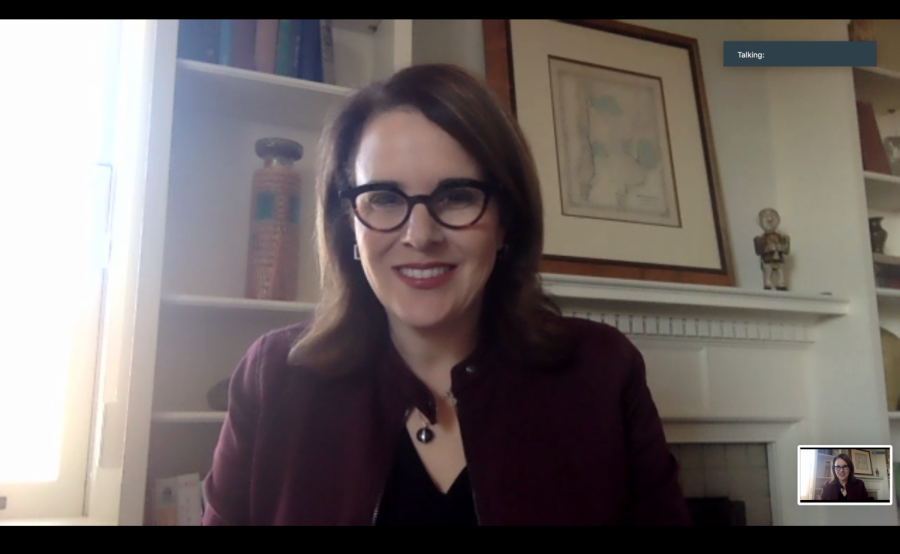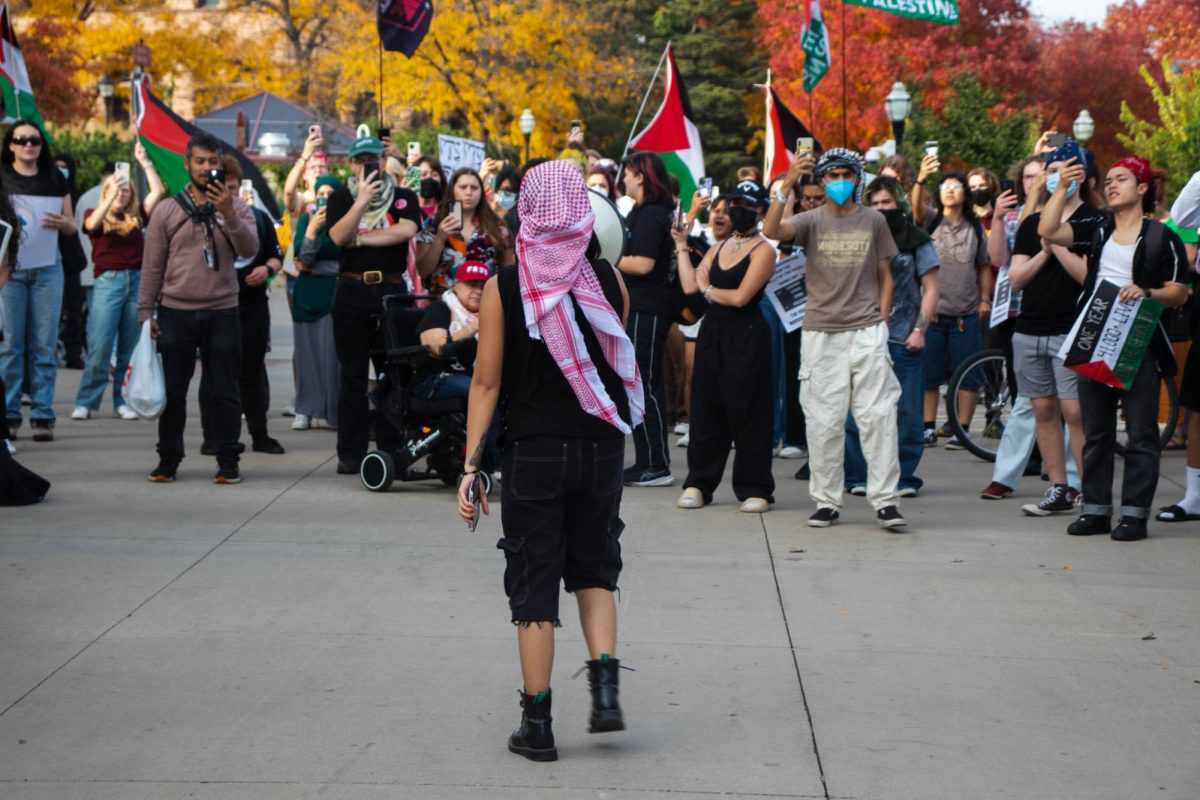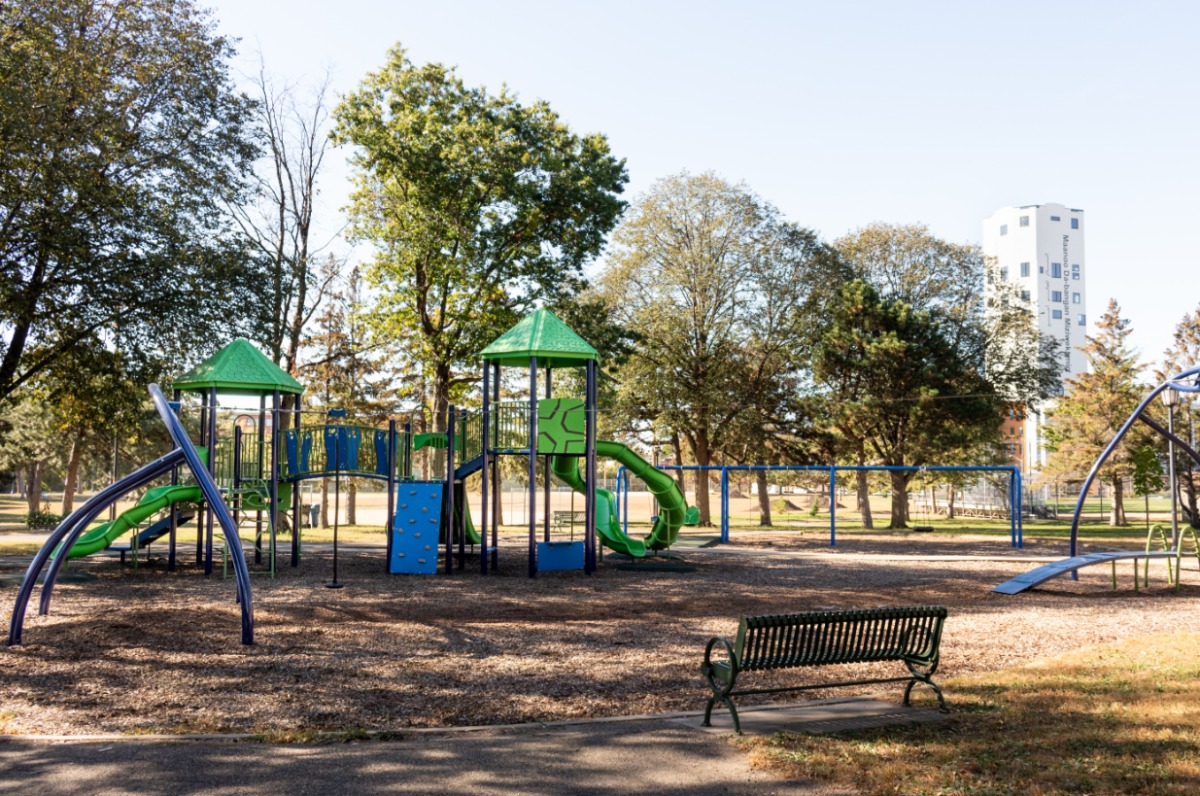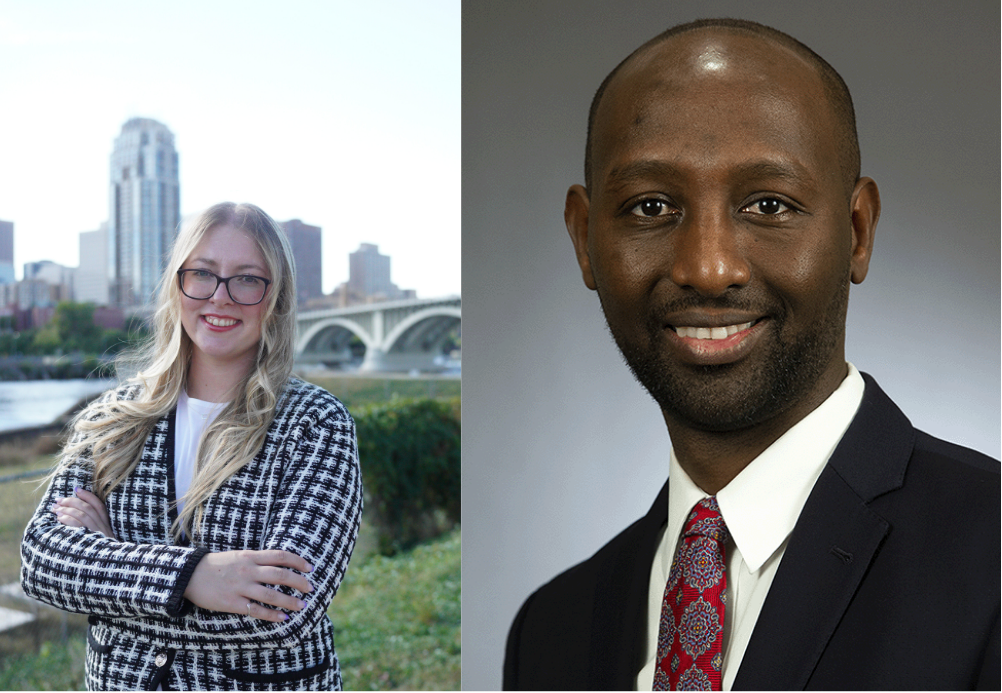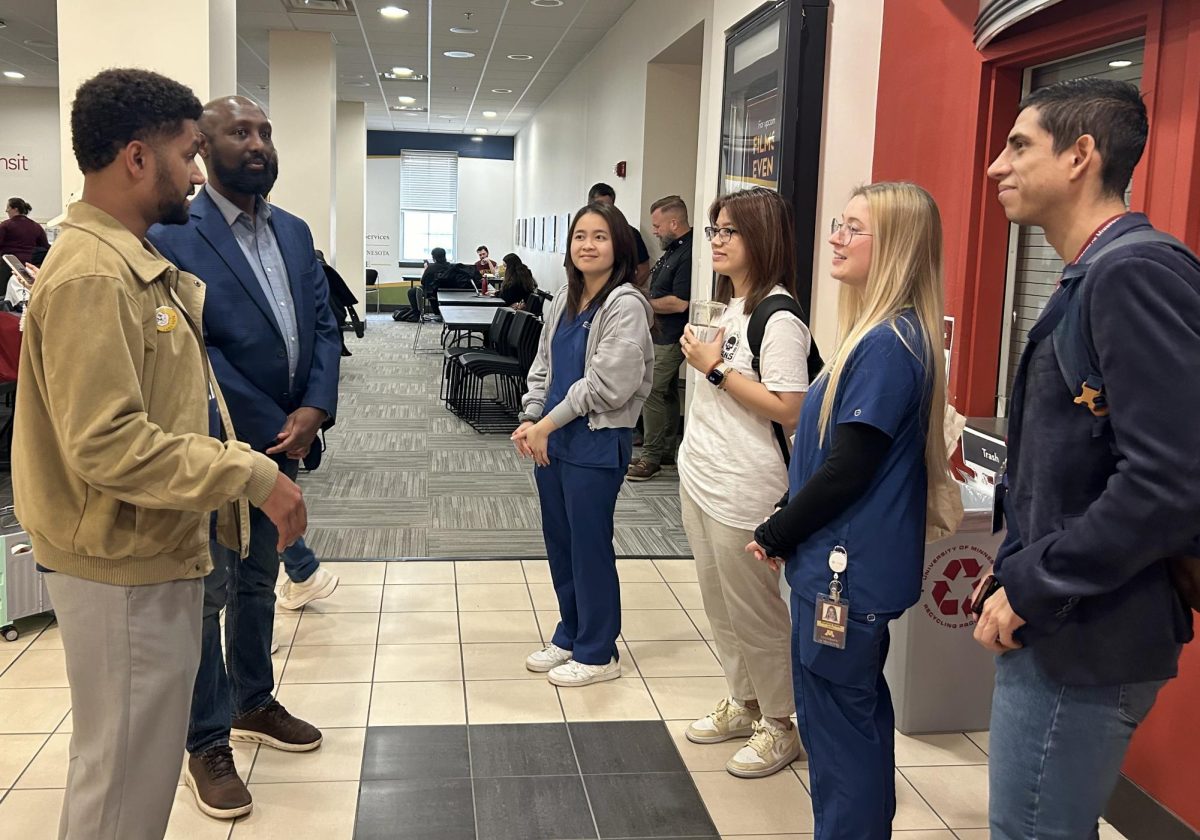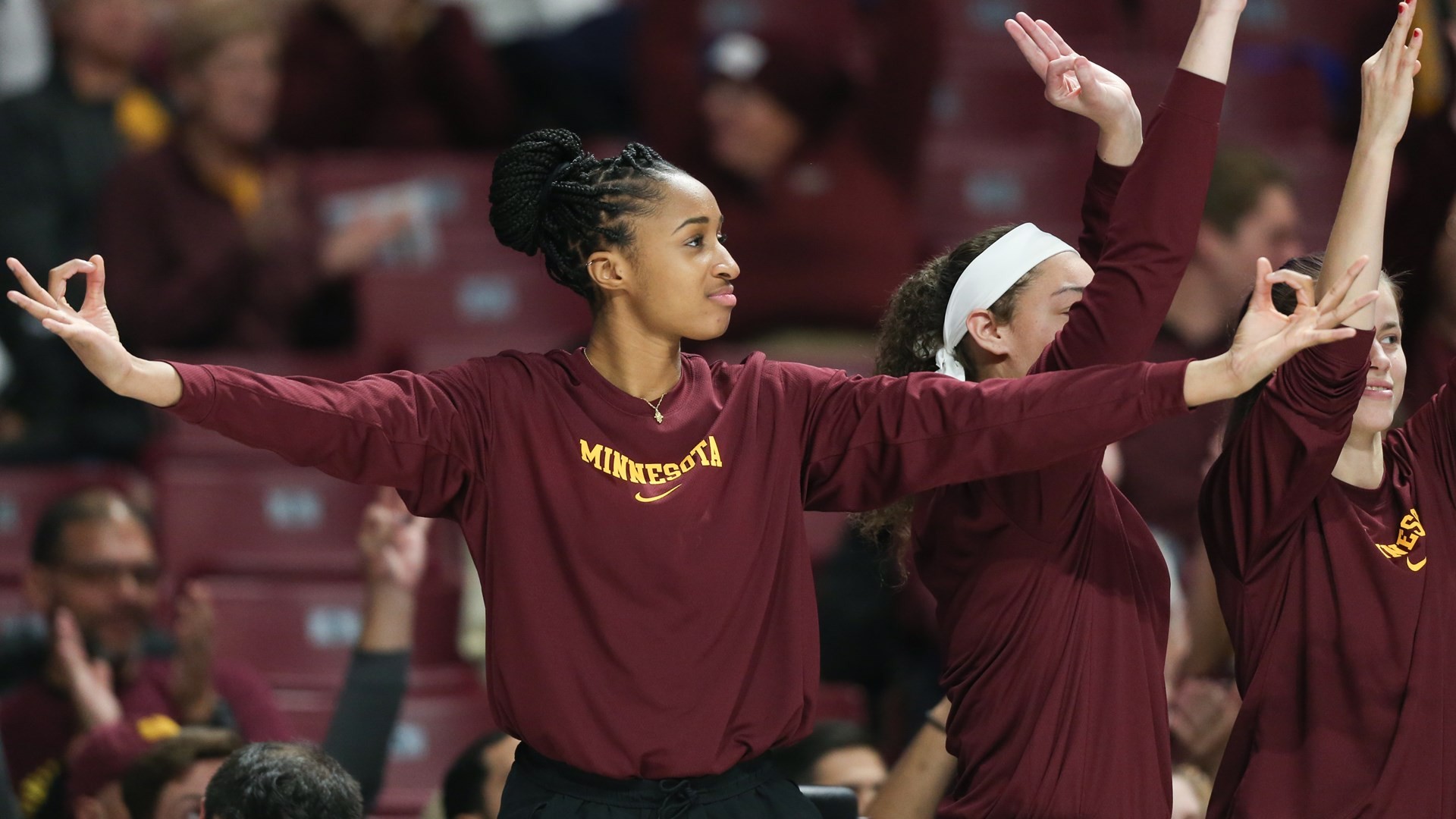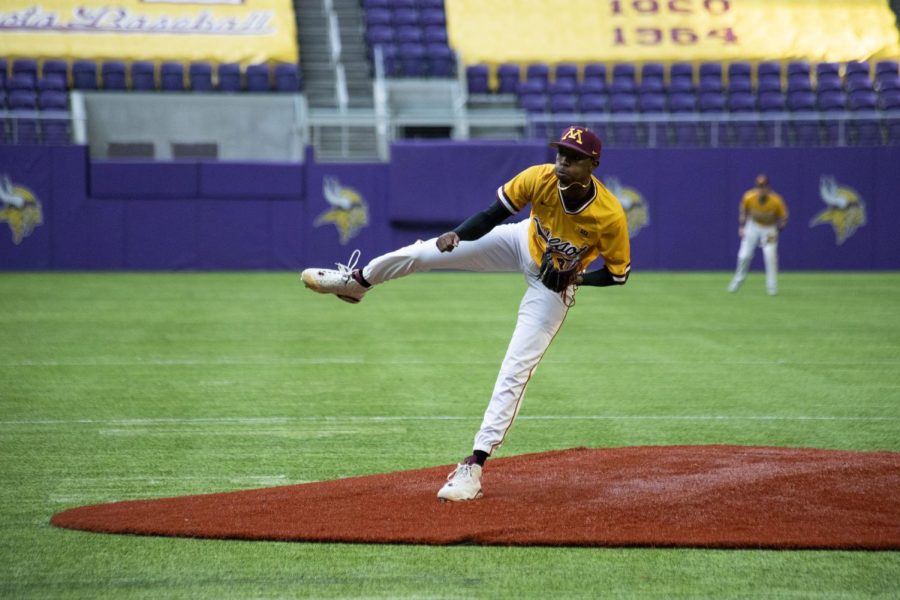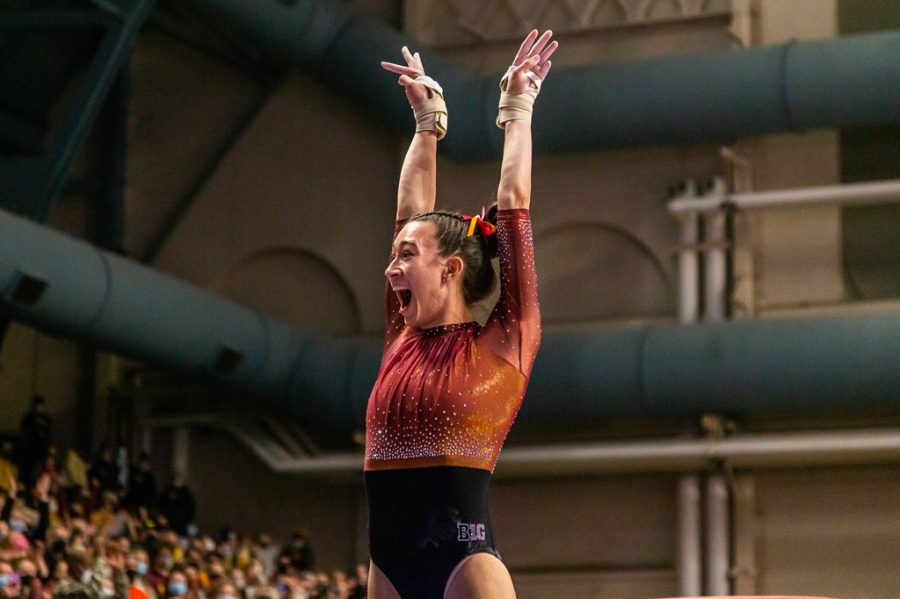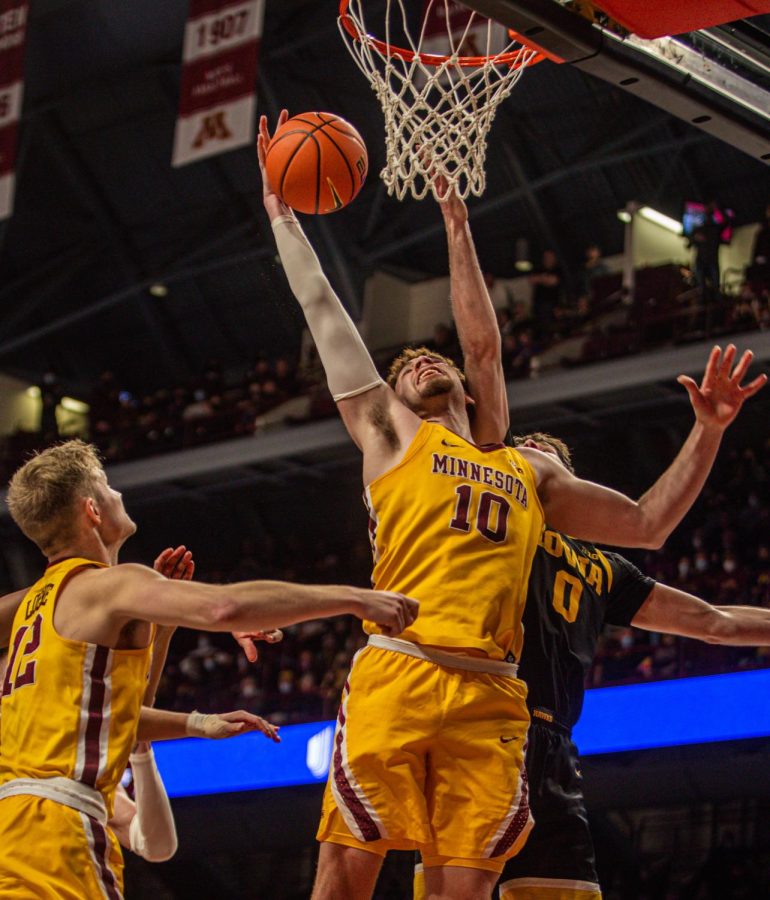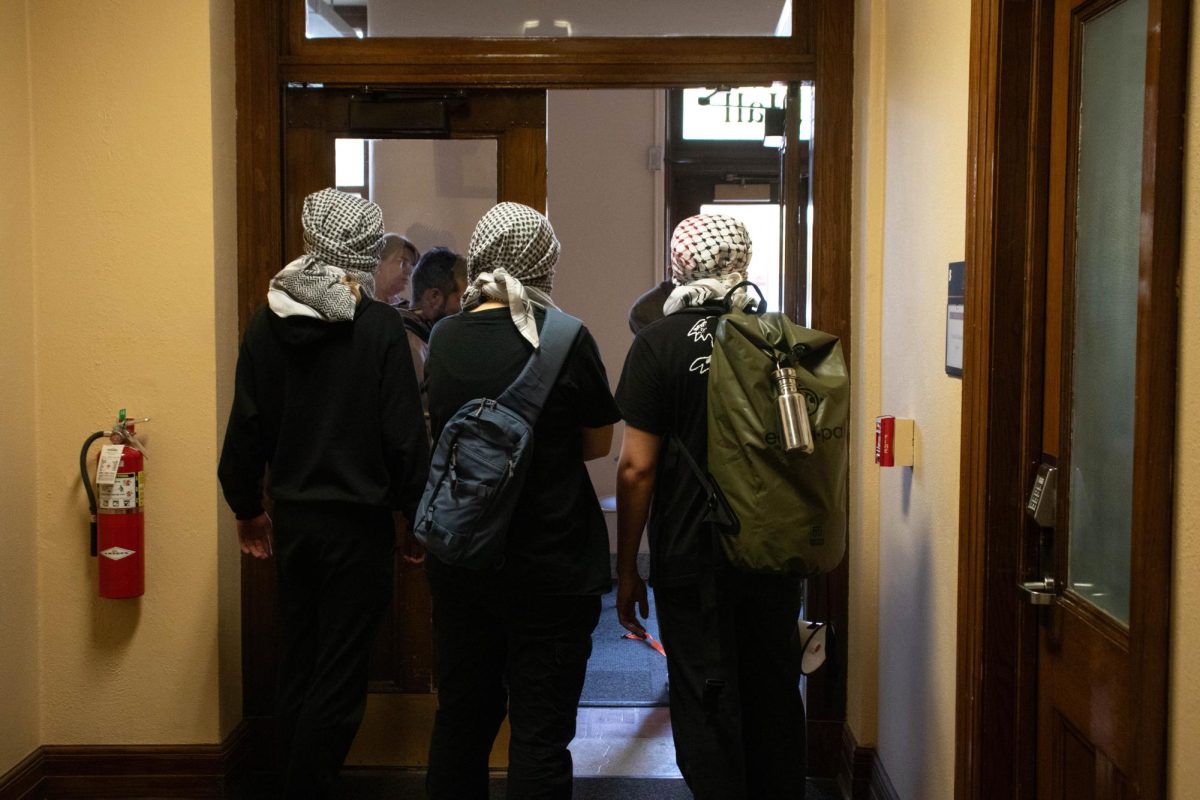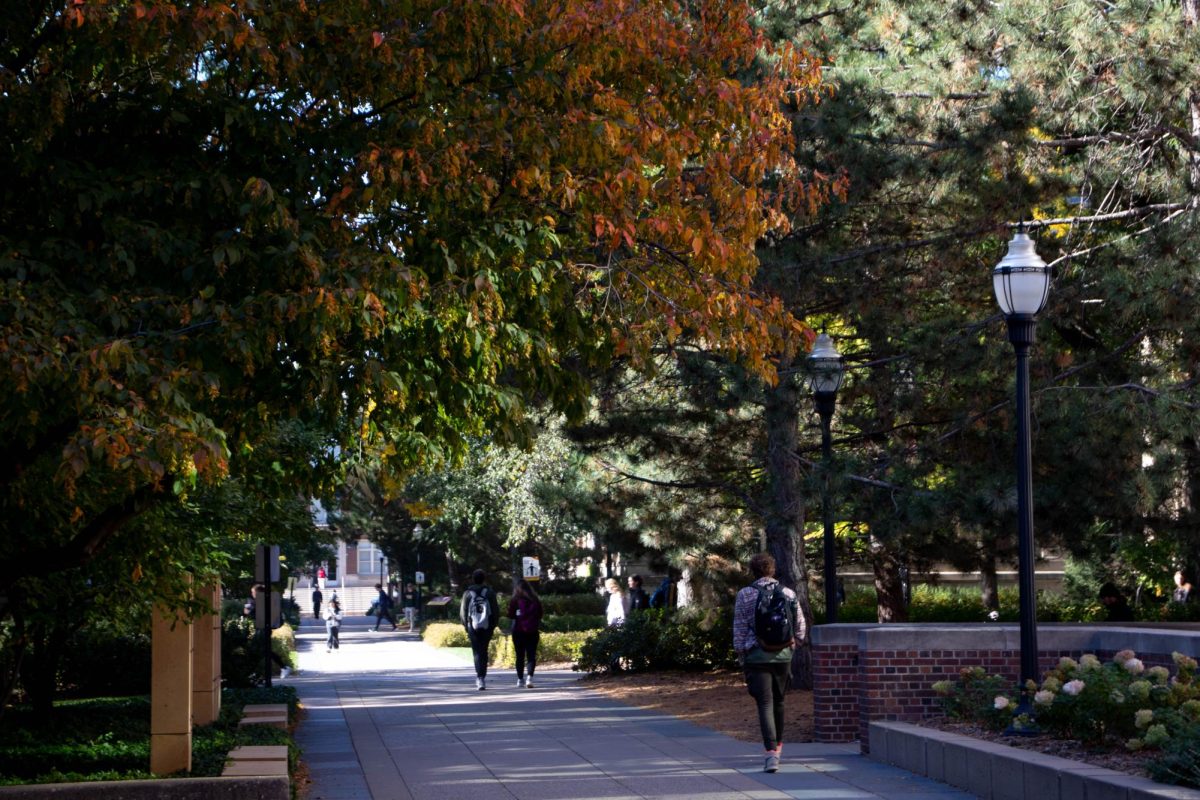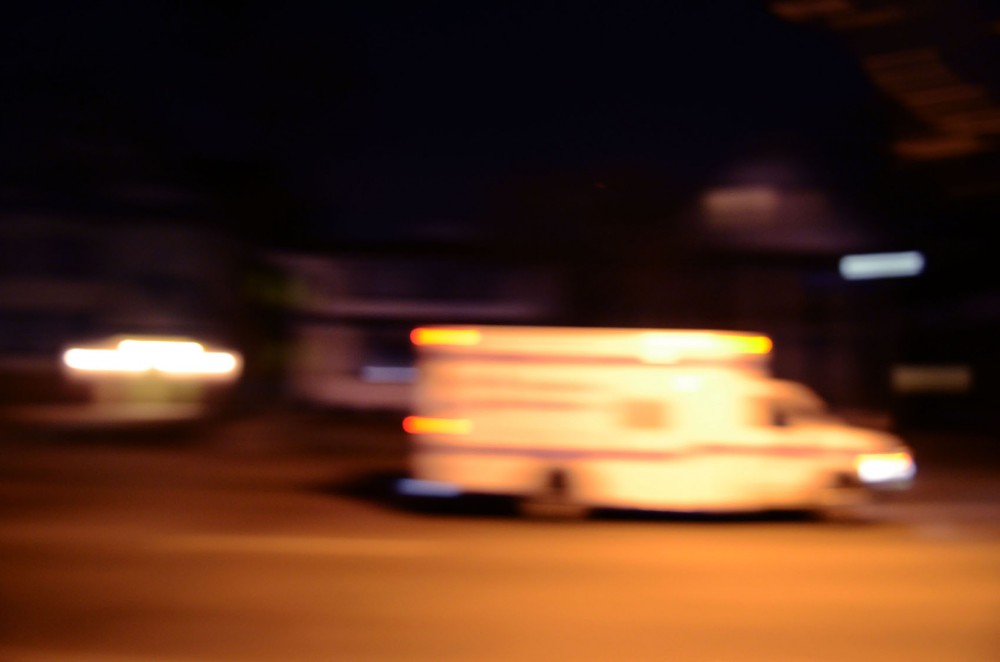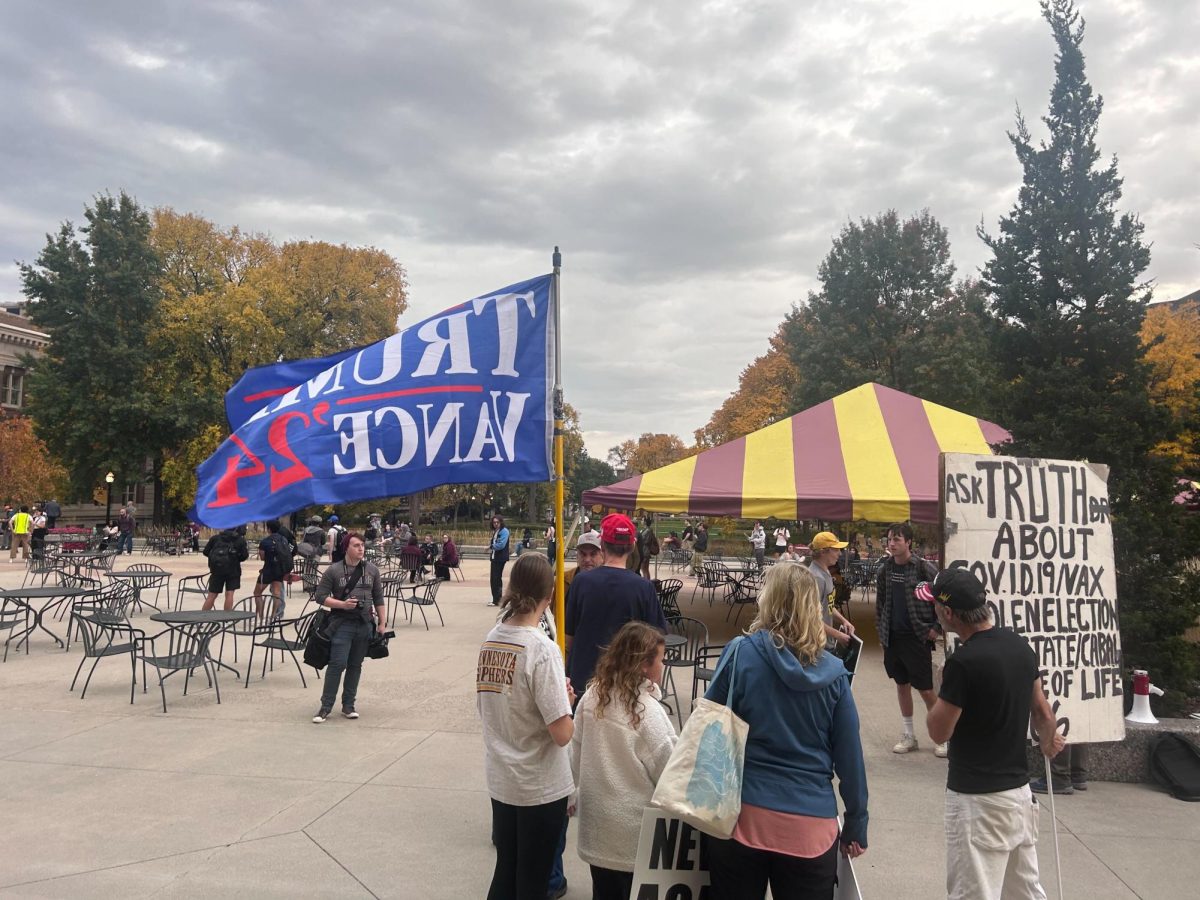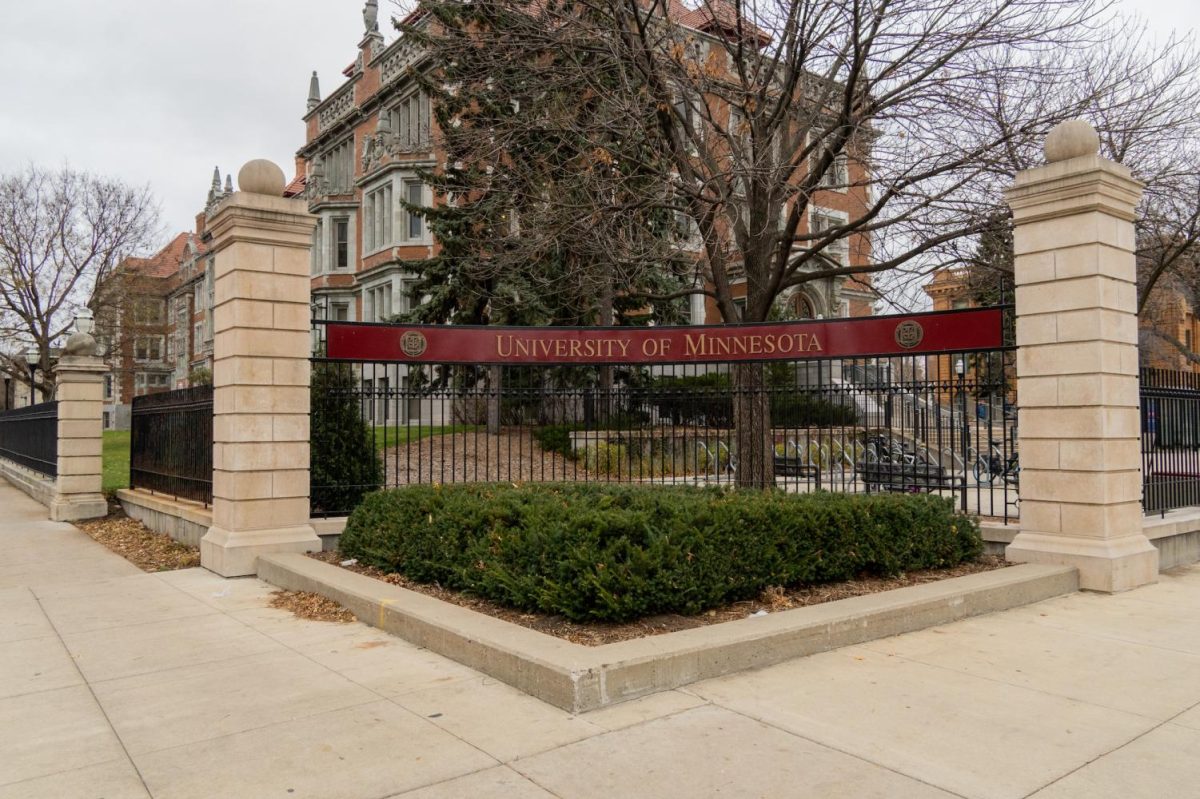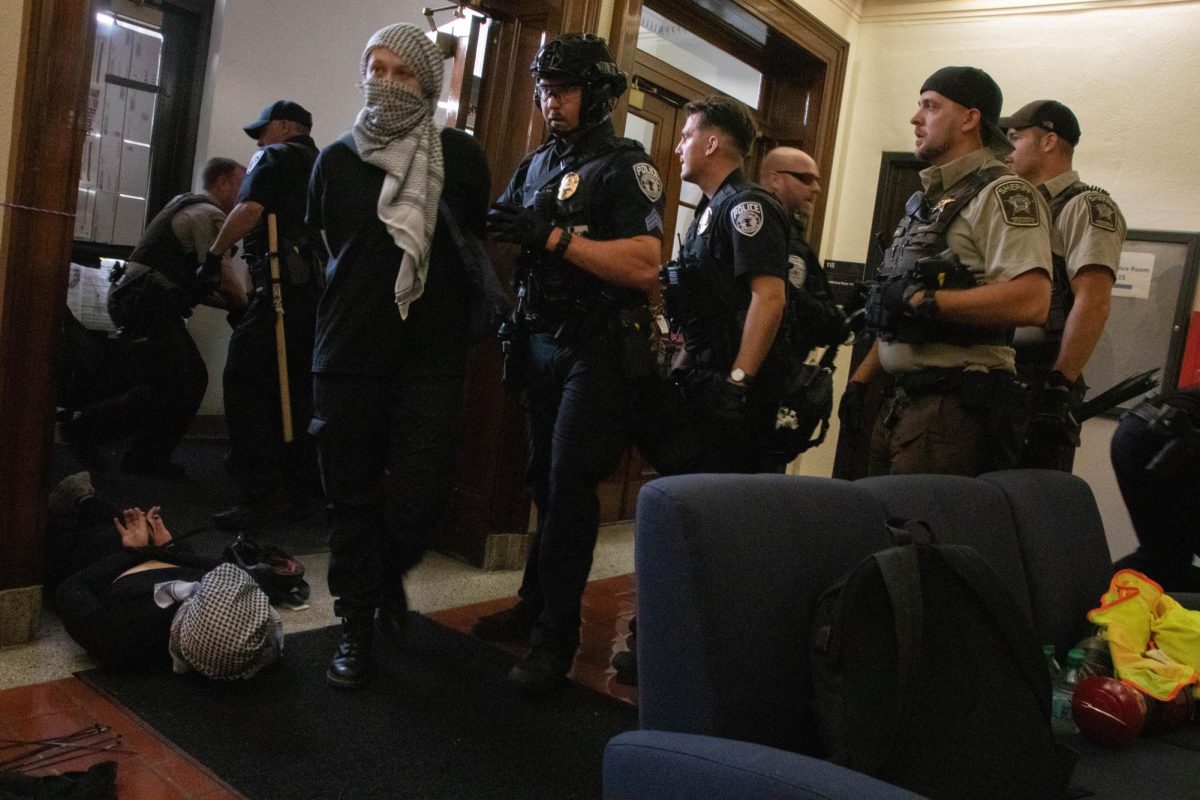In an interview with the Minnesota Daily Friday, University of Minnesota President Joan Gabel discussed how the University is addressing food insecurity concerns for students on campus and reflected on the administration’s decision to eliminate three men’s sports programs more than a year ago.
Gabel also gave an update on University COVID-19 vaccination rates among students, faculty and staff. Student responses were due Oct. 8 and faculty responses were due Sept. 17.
Now that COVID-19 vaccination deadlines have passed for both faculty and staff, what are the final percentages of students and faculty that have met their respective requirements?
As of Oct. 14, 99.04% of [faculty and staff] have completed their attestation and of those who responded, 94.82% attested being fully vaccinated. Those who did not attest to being fully vaccinated have signed off agreeing to [be tested for COVID-19].
Amongst students, 91.61% have responded to the vaccination form. Of those, 95.94% report being fully vaccinated. 3.7% submitted religious exemption and 0.3% submitted a medical exemption. These are system wide [statistics].
As more students become eligible for COVID-19 booster shots, will the University provide support to help students get these shots?
We are dependent on receiving the vaccines from [the state of Minnesota]. But assuming that the supply remains sufficient, we are delighted to serve everyone who would like to receive their booster shot and we strongly encourage you to get one as soon as you’re eligible. I should point out that Boynton pharmacy is now providing boosters for those who qualify.
Last year, the Board of Regents approved the removal of three sports programs in order to offset financial impacts of COVID-19 and comply with Title IX mandates. While many support this decision, many administrators, student athletes, coaches and other stakeholders did not. Do you still stand by the decision to cut these sports programs given the strong reaction and the relatively small cost savings it has generated so far?
I 100% still stand by that decision, although I absolutely acknowledge that it was a painful and heartbreaking decision. The savings are a long term, recurring savings year over year over year and the Title IX compliance is a requirement. So these two intersected in a way that made me and the athletic director and the majority of the [Board of Regents] feel as if this was what was best for the athletic department and therefore the University as whole.
How is implementation progressing on the Promise Plus program?
The Promise program was a program addressing the range of needs for families that make $120,000 a year or less. The Promise Plus program guarantees free tuition for families whose student makes $50,000 or less. We welcomed our first eligible cohort this fall and it covers students for four years.
This is a part of a very broad, robust portfolio of aid that [the University] provides to families with financial need. It’s not as if families that make $50,001 don’t receive any support. This is just guaranteed. At that level, many students whose families make more than that also receive significant financial aid in different ways. This is a component that creates a certainty for our families that are most at the highest financial risk.
The University’s campus is a food desert, as stated in an KARE 11 interview with Minnesota Student Association president Abdulaziz Mohamed and also by data from the U.S. Department of Agriculture. There are not many grocery stores on campus or within campus neighborhoods, like Marcy-Holmes/Dinkytown, Prospect Park, Como and Cedar-Riverside, and many of the grocery stores that do exist are not accessible to many students. What has the University done to address concerns from students about the lack of grocery stores in and around campus?
We have a variety of initiatives underway around food insecurity and around the fact that access to even acquiring goods can be limited. We have the food pantry which is run through Boynton and is a part of Students Affairs and under Dr. Calvin Phillips, our new Vice President of Student Affairs.”
This is fresh and healthy food any student can access and doesn’t have to demonstrate need. Over 800 students were at the September event. We have this Swipe Out hunger effort where students can use pickup box lunches so, if they can’t go to the grocery store, they can get food from dining.We know that MSA is working with the state to achieve a designation around what it would mean to partner more formally and we’ve been supporting that fully.
This interview has been edited for length, grammar and clarity.


